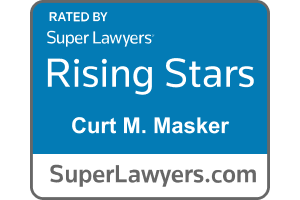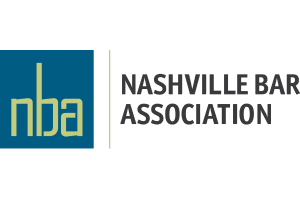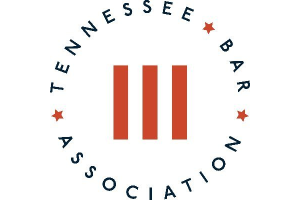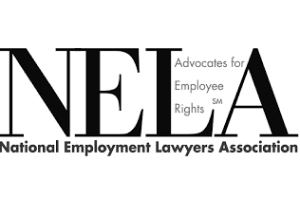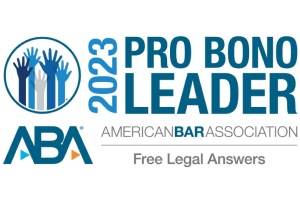for Workers
Disability Discrimination
If you have a disability and are qualified to do your job, federal and state laws protect you from job discrimination based on your disability. Do not let your employer’s discriminatory actions stop you from achieving your professional goals. If you have been fired, demoted, or otherwise mistreated based on your actual or perceived disability, you may be the victim of disability discrimination.
Our Nashville disability discrimination lawyers fight for victims of workplace discrimination and harassment. Our team has a proven track record of successfully fighting for victims of discrimination which has resulted in highly satisfied clients.
Disability discrimination is prohibited by both federal and Tennessee law. Workers who suffer disability discrimination can seek monetary compensation including lost wages and benefits, emotional distress damages, and reasonable attorney’s fees and costs. As a law firm exclusively dedicated to fighting for workers’ rights, our firm has witnessed the lasting impact disability discrimination has in the workplace. It’s time to fight back.
Examples of workplace disability discrimination may include:
- Failing to reasonably accommodate a worker’s disability
- Refusing to promote a worker due to perceived limitations of their disability
- Ridiculing and harassing an employee based on their disability, including offensive “jokes” or threats (not simple teasing or offhand comments)
- Refusing to hire a job candidate after finding out about their disability
- Demoting a worker because of the perceived limitations of their disability
- Failing to engage in a good faith interactive process to determine if a disability can be reasonably accommodated
The Americans With Disabilities Act (ADA)
The ADA is a federal law that prohibits employers with 15 or more employees from discriminating against a qualified individual on the basis of disability in regard to hiring, firing, and other terms and conditions of employment. 42 U.S.C. § 12112(a). Relatedly, the federal Rehabilitation Act prohibits such discrimination under any program or activity receiving federal financial assistance. 29 U.S.C. § 794(a).
What Is a Disability Under the ADA?
The definition of “disability” under the ADA encompasses:
- A physical or mental condition that substantially limits a major life activity (see examples below);
- A record of having a disability (such as cancer that is in remission); or
- Being regarded as disabled by your employer even though you do not actually have any impairment.
The ADA defines a disability as “a physical or mental impairment that substantially limits one or more major life activities.” 42 U.S.C. § 12102(1)(A). Major life activities include, but are not limited to, breathing, seeing, hearing, sleeping, learning, communicating, interacting with others, thinking, and working. Id. at (2)(A). To determine whether a disability substantially limits major life activities, courts compare the person claiming a disability to “most people in the general population.” 29 C.F.R. § 1630.2(j)(1)(ii). This is not a demanding standard, and in general, a plaintiff does not need to submit scientific, medical, or statistical proof to establish a substantial limitation.
An impairment need not prevent, or significantly or severely restrict a major life activity to be substantially limiting. The ADA, as amended, provides that “an impairment that is episodic or in remission is a disability if it would substantially limit a major life activity when active.” 42 U.S.C. 12102(4)(D). This provision was added to overrule court decisions that concluded individuals with certain conditions, such as epilepsy or post-traumatic stress disorder, were not protected by the ADA because their conditions were episodic or intermittent. 29. C.F.R. § 1630.2(j)(1)(vii) (2008).
Do not let your employer’s prejudice negatively impact your career. Contact a Nashville disability discrimination lawyer for a free online case review at the number above or online.
Failure to Accommodate Claims Under the ADA
The ADA’s broad definition of discrimination includes “not making reasonable accommodations to the known physical or mental limitations of an otherwise qualified individual with a disability who is an applicant or employee, unless such covered entity can demonstrate that the accommodation would impose an undue hardship on the operation of the business of such covered entity.” 42 U.S.C. § 12112(b)(5)(A).
“Because not making reasonable accommodations is listed in the ADA’s definition of disability discrimination, claims premised upon an employer’s failure to offer a reasonable accommodation necessarily involve direct evidence (the failure to accommodate) of discrimination.” Kleiber v. Honda of Am. Mfg., Inc., 485 F.3d 862, 868 (6th Cir. 2007).
Courts in the Sixth Circuit apply the following direct evidence test to resolve ADA failure to accommodate claims:
- (1)The plaintiff bears the burden of establishing that he or she is disabled.
- (2)The plaintiff bears the burden of establishing that he or she is “otherwise qualified” for the position despite his or her disability: (a) without accommodation from the employer; (b) with an alleged “essential” job requirement eliminated; or (c) with a proposed reasonable accommodation.
- (3)The employer will bear the burden of proving that a challenged job criterion is essential, and therefore a business necessity, or that a proposed accommodation will impose an undue hardship upon the employer.
Undue Hardship Under the ADA
Once a plaintiff establishes that she is disabled and “otherwise qualified” for her position, the burden shifts to the employer to show either special circumstances that demonstrate undue hardship in the particular circumstances, or that the proposed accommodation eliminates an essential job requirement.
Essential functions are the fundamental job duties of the position the individual, excluding marginal functions. A job function may be considered essential because (1) the position exists to perform the function, (2) a limited number of employees are available that can perform it, or (3) it is highly specialized. Whether a function is essential is evaluated on a case-by-case basis by examining a number of factors, including the employer’s judgment as to what functions of a job are essential and an employer’s written description” of the job.
Failure to Engage in the Interactive Process
Once an employee requests an accommodation, the employer has a duty to engage in a good faith interactive process. This means the employer must identify the precise limitations resulting from the disability and potential reasonable accommodations that could overcome those limitations. Employers must engage in an “individualized inquiry” to determine whether a reasonable accommodation can be made. If the interactive process was triggered but not successful, courts try to isolate the cause of the breakdown and then assign responsibility.
Ready to take action? Contact our Nashville-based disability discrimination lawyers for a free and confidential online case review at the number above or online.
Discriminatory Discharge Under the ADA
An employer’s “failure to consider the possibility of reasonable accommodation for known disabilities, [that] leads to discharge for performance inadequacies resulting from the disabilities, amounts to a discharge solely because of the disabilities.” See McPherson v. Mich. High Sch. Athletic Ass’n, Inc., 119 F.3d 453, 460 (6th Cir. 1997) (en banc).
To prove discriminatory discharge under the ADA, a plaintiff must show that (1) she is disabled; (2) she is otherwise qualified for the position with or without reasonable accommodation; (3) she suffered an adverse employment decision; (4) her employer knew or had reason to know of her disability; and (5) her position remained open.” Cash v. Siegel-Robert, Inc., 548 F. App’x 330, 335 (6th Cir. 2013)
Disability Discrimination Under the Tennessee Disability Act
The Tennessee Disability Act (TDA) also prohibits disability discrimination in the workplace. However, unlike the ADA, the TDA does not require employers to make reasonable accommodations to accommodate a disabled employee. Bennett v. Nissan North America, Inc., 315 S.W.3d 832, 841-42 (Tenn. Ct. App. 2009). Thus, if a person’s disability “to some degree prevents the applicant from performing the duties required by the employment sought or impairs the performance of the work involved[,]” an employer will not be considered to have discriminated against that person in an action under the TDA. Id.
Contact Rickard Masker, PLC Today
You do not have to tolerate workplace discrimination because of your actual or perceived disability. Contact our disability discrimination attorneys in Nashville for a free online case review at the number above or online.


